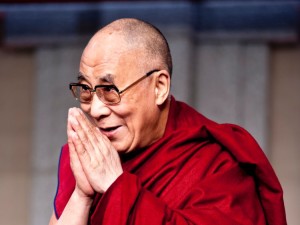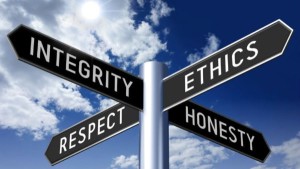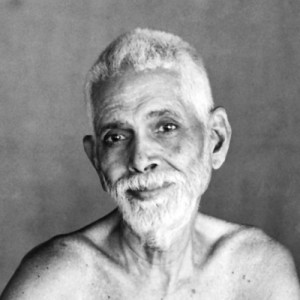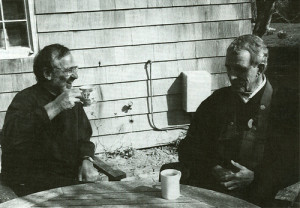
Why Spiritual Teachers are Important
Someone once asked the Dalai Lama if it was necessary to have a guru or spiritual teacher. He said, “no, it’s not necessary, but it can save you a lot of time.”
Over my years of diving deep into Yoga & Buddhism, dabbling in several other traditions, and conversing with hundreds of other seekers, I’ve come to strongly agree with the Dalia Lama’s quote.
While the deepest truth is always inside us, a teacher helps point the way when we’re uncertain or stagnated, and likewise inspires or nudges us to keep on going forward.
Having a good teacher is considerably more effective than doing it alone.
However, a bad teacher can leave us the same or even worse than when we started.
In extreme cases, this might be the guru who sleeps with their students against their will. In lighter cases, perhaps they just lead use to a false finish line, where we think we’ve “got it all figured out,” but are actually quite off course. In other words, since it’s really helpful to have a good teacher, an essential question is:
How to evaluate a spiritual teacher?
The rest of this guide will break this question down into four major components. Here’s the outline:
1) Ethics, Integrity & Accountability
2) Way of Being (and a story)
3) Accessibility (and how communities can be teachers)
4) Their Actual Teachings
5) Conclusion
Note: for me, “a spiritual teacher” isn’t anything mystical or fancy; it’s simply a guide, mentor, or anyone who helps us into a deeper experience of what life is all about.
 Ethics, Integrity & Accountability
Ethics, Integrity & Accountability
The core ethical principle of the Buddhist tradition is non-harming (aka kindness).
Even beyond Buddhism, this is always the #1 red flag I look for in a teacher (or friend). If they are mean, abuse their power, out of integrity, or seem to be knowingly causing harm to others, I get very suspicious.
Of course, we’ve all heard stories of teachers who cross this line. Quite often it happens when they are very charismatic, brilliant or have some popular message. They are often skilled with their words and may have very convincing arguments on why they are actually acting in integrity. Of course, they may actually have some genuine insight into reality, but that’s no excuse to dismiss human ethics (e.g. calling it an illusion or unimportant, etc.).
More to the point, a teacher’s sensitivity towards and commitment to ethics is actually really important.
Until we have a very developed practice, I usually recommend sticking with “name brand traditions,” like Buddhism, Taoism or Yoga, for the simple fact that there are thousands of years of teachings we cross-reference to keep a teacher accountable.
Basically, starting our spiritual journey in a time-tested tradition creates a safe container to build base spiritual qualities as well as time and space to refine our intuition for spotting ethics. Once we’ve got the basics down, feel free to become a free-agent and practice with any teacher who seems to really embody the path.
 Way of Being (and a story)
Way of Being (and a story)
A friend and I spent an afternoon trekking into outer Dharamsala, India to meet a revered yet not-so-well-known yoga teacher. When we arrived at his small house overlooking the surrounding mountains, he was sitting on the porch looking at a notebook. The moment he heard us, he looked up and gazed at us with the warm presence of a clear summer sky and said, “Hello, can I help you?”
“We are looking for Amit, the yoga teacher.”
“I am Amit,” he said, resting back into tender stillness before continuing, “You want to practice yoga?”
Within a few minutes of chatting, we got his schedule and a good feel for what he had to offer. We turned to leave, and after stepping back onto the road, my friend turned to me and said, “I wish I had met him the first day I arrived here, rather than spend that uninspired week at the other center—I’m definitely coming back!”
I smiled and said, “I feel the same!”
I ended up spending three weeks studying with Amit; and, at one point near the end, I caught him after class and asked his thoughts on spirituality. He chuckled with a child-like amusement. Back then, I was very serious, so I asked why he was laughing.
With dilated, joyful eyes, he said, “I don’t really know about spirituality. I meditate because I like it. And I really listen to people. That’s about all I know about spirituality. Really listen. That’s my practice.”
Sure, he had spent some years as a renunciate, and now taught meditation, yoga postures and philosophy; but, at the core, none of that was what I was drawn to.
Instead, I was drawn to his way of being; his warm, grounded presence that seemed unshakeable in the 60 or so hours I spent with him, even when he was sick, getting interrupted, dealing with pain, getting push-back from students, and on and on.
To put it another way, he had something that I wanted for myself. He was a great teacher for me, and inspired me to take my practice deeper.
A Deeper Analysis on a Teacher’s Way of Being
In some ways, the qualities of being we’re drawn to in a teacher aren’t always the same.
With my primary teacher, Sayadaw U Tejaniya, I was largely drawn to his authenticity, curiosity and radically deep acceptance of what is (including all my neurosis!). With other teachers, I’ve been drawn to their tenderness, heartfulness, humility, passion, energy, simplicity, or many other things.
And yet, even though every teacher has a different way of embodying and expressing their insights, the Buddha offered some central advice on what unites all great teachers: an absence of craving, aversion and delusion.
More plainly, this is a teacher that is very wise, and doesn’t get frazzled by the ups and downs of life. So while it’s great if a teacher is loving, patient and radiant when things are going well, how do they respond when things aren’t going well? I always keep an eye out for that!
Weaving this all together, a teacher is fundamentally pointing us towards a new way of being in the world, and the one they will be most successful at guiding us towards is generally the one they inhabit themselves.
So how do they actually live? Do you feel good around them? Do you want to be like them? Do they seem to live with great wisdom and/or love even when things get tough?
 Accessibility (and how communities can be teachers)
Accessibility (and how communities can be teachers)
Classically, spiritual teachings were offered not so much through books or lectures, but through transmission; or, direct contact with a teacher.
Indeed, in the two years I spent as a Buddhist monk in Myanmar, some of the most powerful lessons didn’t come through formal meditation, but through spending personal time with my teacher. I soaked in his way of being (see above) as if through osmosis, and was able to more deeply internalize those qualities just by being around him. Likewise, the ability to regularly dialogue with him helped us understand each other more intimately, and for his words/advice to sink in on a much deeper level.
I also recall my early years of spiritual practice, when I learned so much from my local yoga teachers. They weren’t anything close to enlightened masters, but they were very sincere and dedicated, and I could actually engage with them. Some of the conversations we had after classes were more meaningful and powerful than anything I’ve ever read in a book.
There’s a famous saying that says, you are the average of the five people you spend the most time with.
In turn, while books, dharma talks and spiritual texts are really helpful, your greatest teachers will typically be those you have real contact with.
Here are some practical questions regarding teachers:
- Do they have a regularly meeting public event?
- Is there some way you can ask them real questions – whether that’s at their public event, through email/text/phone, or in a private meeting?
- Is there a way to schedule private time with them?
- Are you able to engage with them in informal ways?
How Community Can be a Teacher
In recent years, I’ve seen how the Sangha can actually be a major teacher. The basic idea of a Sangha is that its members are united by a common intention – in Buddhism, to live with ethical integrity and journey towards awakening.
In turn, even if the sangha members aren’t highly realized, that intention pairs with a high level of accessibility. We’re able to really see each other, reflect each other, learn from each other in the way that only comes through spending intimate time together. This has enough of a transformative effect that the Buddha once said, “spiritual friendship is the entirety of the path.”
Accessibility matters.

Their Actual Teachings
I grew up in a Christian home and community, and I’ve met plenty of preachers and sincere Christians that meet all the above criteria. However, their world view, practices and teachings just don’t resonate with me.
To put it another way, they don’t inspire me to go deep.
The same is true of various Buddhist and Yogic teachers—some awaken my motivation to incredible degrees, and others leave me feeling bored, skeptical and uninspired (even if I agree with them). How much we resonate with a teacher’s actual teachings is really important.
However, even more important than resonance is the depth of their teachings.
It’s like each teacher is offering a map to “somewhere good,” and the resonance is how easy/inspiring it is to read to the map, while the depth is like where the map is leading.
In spiritual traditions, the depth usually ranges from making life’s struggles a little more bearable all the way towards the land beyond struggle (aka awakening or enlightenment). The spiritual masters that we talk about for centuries or millennia are invariably the ones with “deep” messages.
In turn, it’s very useful to notice the core message of different teachers, and the things they say over and over.
For example, the Buddha often said he only taught one thing—suffering & the end of suffering. Other teachers I’ve studied with have continually emphasized radical equanimity, letting go of control, noticing & stabilizing the awakened state, or, say, the supreme importance of making awareness a priority.
The more we hear a teaching (and see it embodied), the more we’re inclined to put it into practice. And, the more we put it into practice, the more it has a chance to impact our lives. If that impact seems to be on the right track, it’s a very good sign that the teachings are solid.
 Conclusion
Conclusion
While there’s certainly a lot of information here (and elsewhere), there is no greater learning than our firsthand experience.
One great strategy is to go check out a few different local teachers and communities, and see what sort of feel we get from them. Just like meeting new friends or lovers, no teacher will ever be perfect, but by keeping in mind these few basic principles, we can start to cess out which ones have the most to offer us.
As a final reflection, consider any influential teachers, mentors, or guides you’ve had to this point in life.
How did they line up with these four categories? What does that tell you about any future teachers, mentors or guides you might choose?

Recently, I spoke with my sister about how she’s interested in learning more about spirituality and is looking for guidance. I liked what you mentioned about how a spiritual teacher understands life in a unique way, so I believe my sister would be glad to read about this. Thank you for your intake on spiritual teachers and how we’d identify a great one.